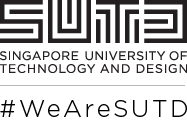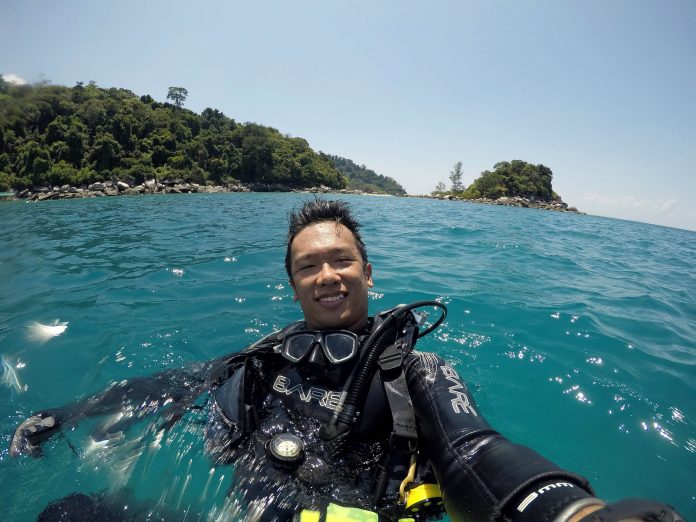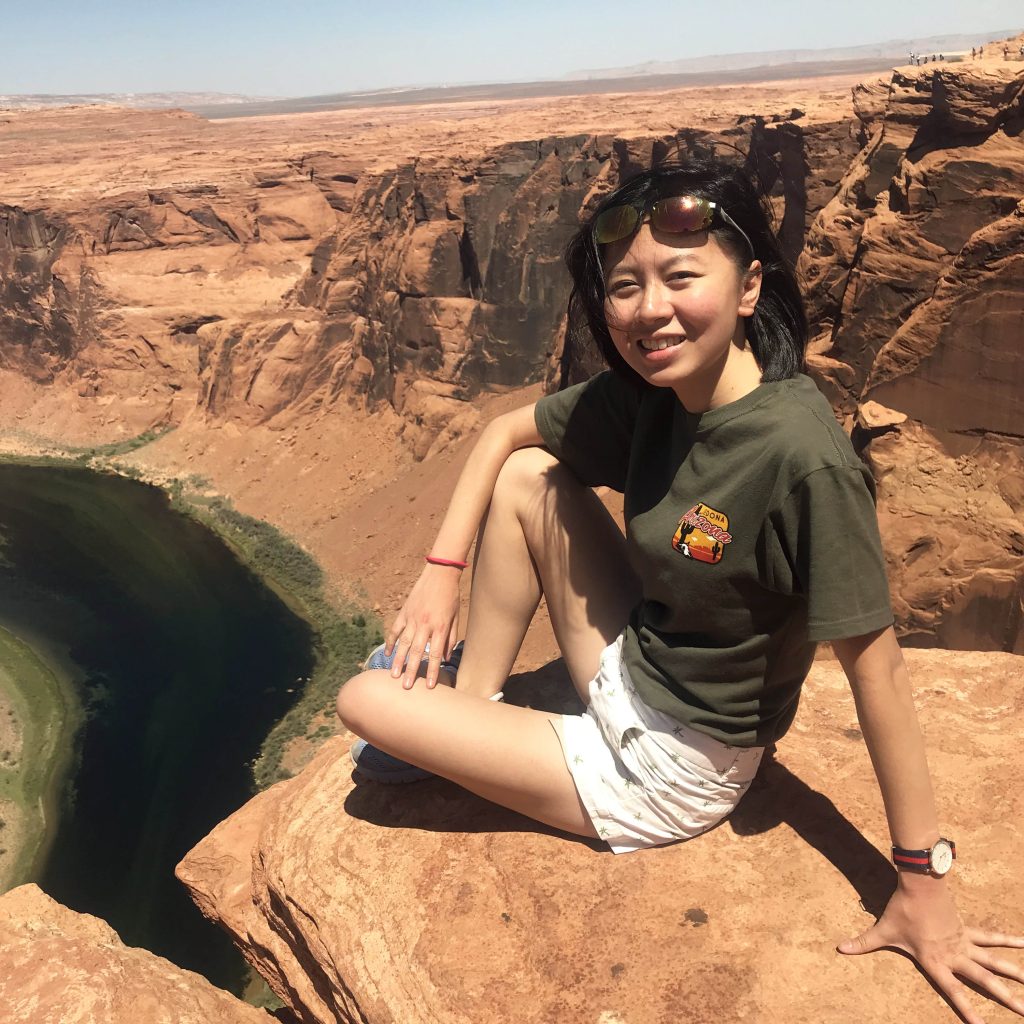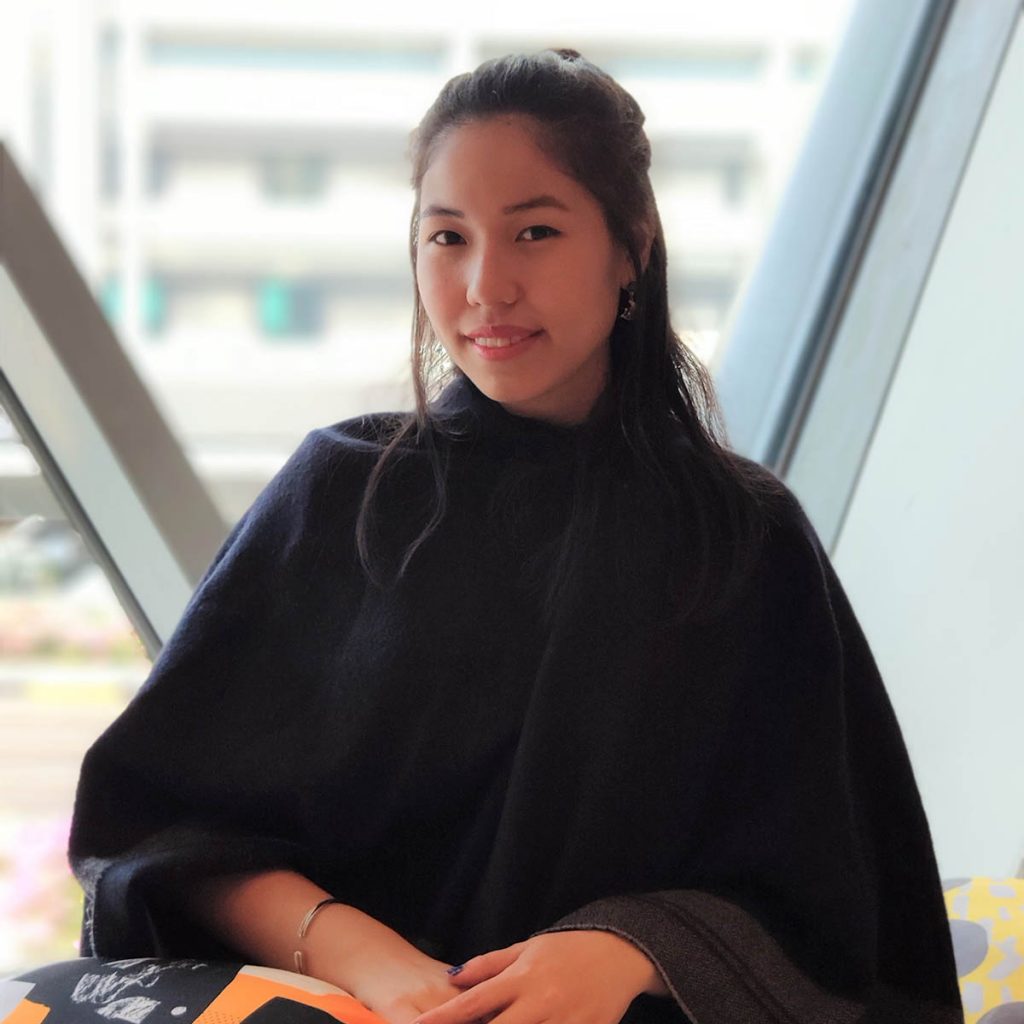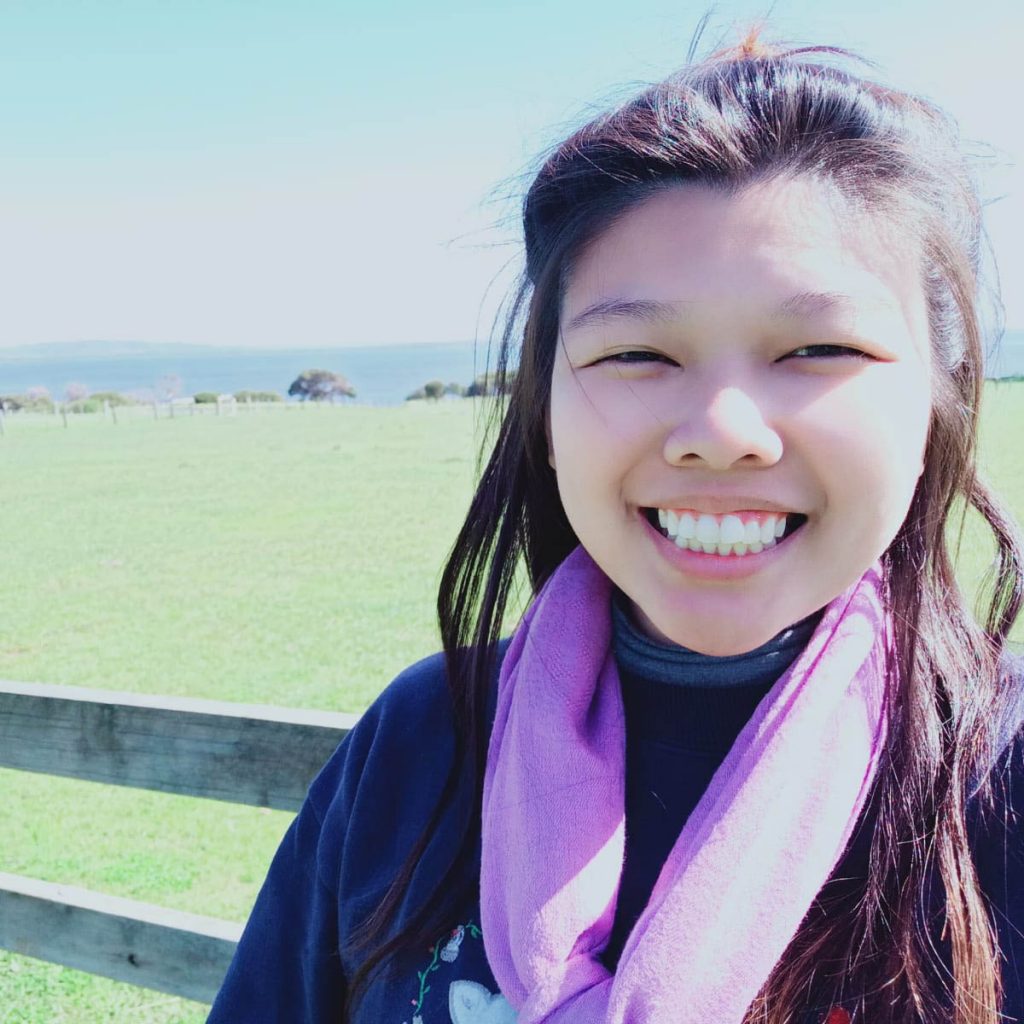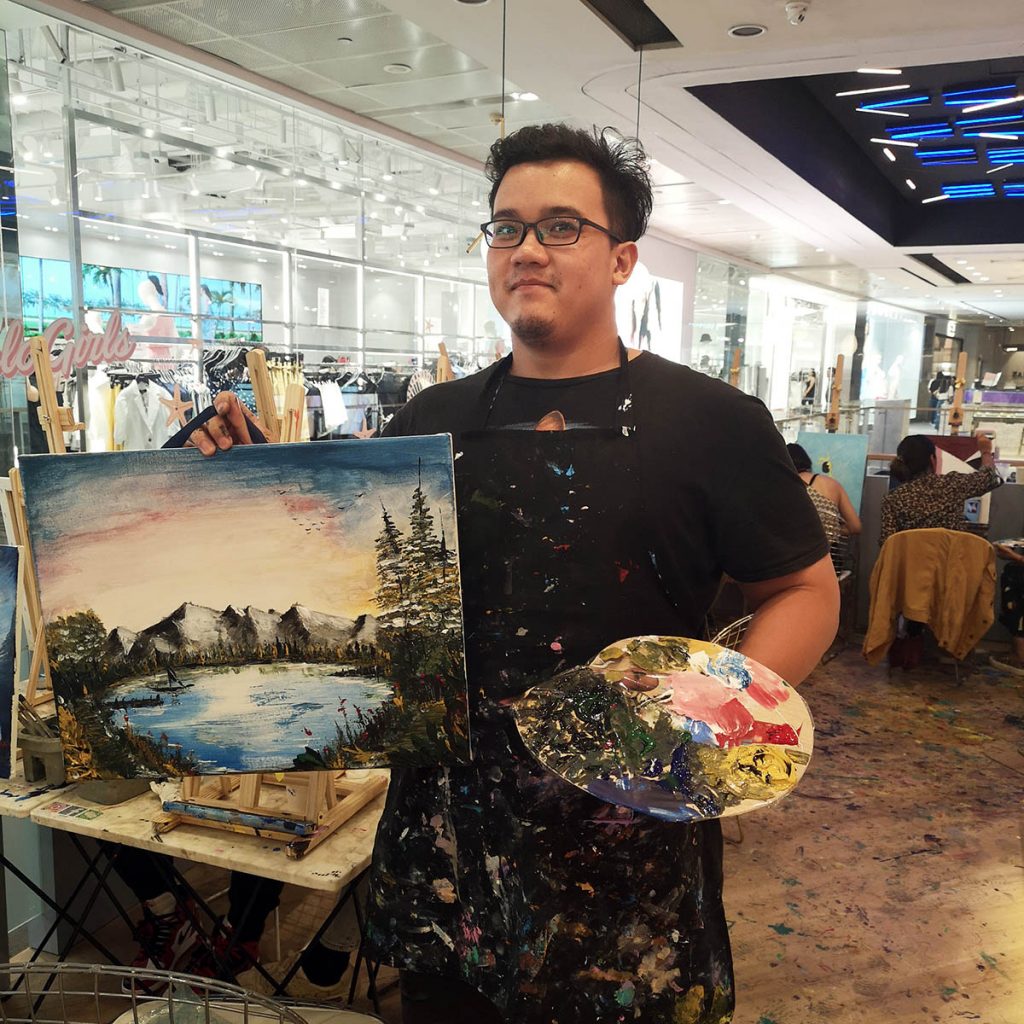We ask eight SUTD graduates what gives them the extra edge in their workplace.
Tan Li Yang, Information Systems Technology and Design
Software Engineer at Orange Business Services
How has SUTD prepared you for your current role at work?
There’s a lot of projects in the SUTD curriculum, and these projects taught me how to be more effective when working in a team. Just like how I had applied the theories taught in class to my projects, I am now extending that application to my current work.
What advantages do you think SUTD graduates have when they are looking for jobs?
I think SUTD graduates have more opportunities to broaden their skill sets. Besides internships, we have the Undergraduate Research Opportunities Programme, as well as the Capstone programme where senior year students are mentored and learn to communicate and collaborate with industry partners. From there, we work closely with them to develop effective solutions to solve their business requirements.
Pek Yun Ning, Engineering Systems and Design, Master of Science in Technology Entrepreneurship
Graduate Trainee at Schroders
How has SUTD prepared you for your current role at work?
SUTD is great at teaching problem-solving skills, presentation skills, empathy for users – and of course, real technical skills.
At work, identifying areas where process efficiency can be improved using technology is a common practice. This keeps our processes streamlined and reduces resource wastage. Automation is a big theme as well, especially in areas where machines can now do what humans have been doing.
At SUTD, I was equipped with the mindset that there is always a better way to do things, there are always more brilliant ideas around the corner, and that each and every one of us has the ability to chart our own future.
Being resourceful, and unafraid to ask questions and propose solutions are crucial skills at work too; these are soft skills picked up at SUTD. The information is out there if you know how to find it – be it from static resources or dynamic interactions with others.
In life, hitting roadblocks is inevitable. What matters more is believing in your ability to overcome them, and understanding that failure puts one in a better stead for success.
What advantages do you think SUTD graduates have when they are looking for jobs?
I believe that the mental training provided by various entrepreneurial projects as part of our curriculum keeps our minds fresh for innovation, creativity, and agile problem-solving. While not all of us start our own businesses after graduating, all SUTD students benefit from the strong entrepreneurship and project-centric culture. These themes are immensely effective in helping students develop and execute novel solutions to real-world problems.
Dion Tan, Engineering Product Development
Senior Associate at Changi Airport Group
How has SUTD prepared you for your current role at work?
I am currently handling projects related to robotics and automation in the airside for the upcoming Changi Airport Terminal 5 (T5).
Having graduated from the robotics track in EPD, my broad knowledge in robotics, machine learning and AI helps me to better manage the projects under my care. SUTD’s strong design culture and curriculum also aid me greatly in my job. The design phases and methodologies that I had learnt are very relevant and applicable to my field of work, and help me understand the constraints of today’s operations.
What advantages do you think SUTD graduates have when they are looking for jobs?
All SUTD graduates have three main advantages when looking for jobs. In no particular order, the first advantage is us having done a multitude of projects. Each of us has our own unique portfolio and experiences under our belt. Through these projects, we learnt how to be a team player, to adapt quickly, and to learn independently.
The next advantage is SUTD’s curriculum and design-thinking culture. All companies have to innovate to remain competitive in the market, so employers see value in graduates who can break down the innovation process into methodological steps.
The last advantage SUTD graduates have is the experience of having done the Capstone programme, which is an industry-based project. Even before we graduated, we have already worked on real-world projects and gained industry experience. The soft skills we learnt, such as communication, project management and real-world problem solving, are invaluable traits that we need in the workforce.
Stella Loo, Architecture and Sustainable Design
Assistant Designer (Architecture) at Aedas Pte Ltd
How has SUTD prepared you for your current role at work?
From what I observe, our design-centred, multi-faceted learning journey in SUTD taught us to be open-minded and adaptable to challenges.
We are open-minded because we were constantly provided with opportunities to experiment. These can be in the form of ideas, cross-pillar collaborations, interests, or even trips to different countries to learn from their cultures and their industry practices.
These opportunities, coupled with the academic vigour of our curriculum, honed us to think and adapt quickly, and to manage our time well.
What advantages do you think SUTD graduates have when they are looking for jobs?
More often than not, I realise (in an actual architecture practice) that it’s the soft skills mentioned earlier that helped me survive that initial ‘beginner’s learning curve’, on top of the topics I learnt in class.
We went through a lot of projects and presentations in SUTD, and this experience helped us to pick things up quickly, and to learn from the feedback we receive. Even outside of architecture, I believe these skills are crucial in any industry and any occupation.
If you’re on your undergraduate journey and you’re starting to worry about your future job, that’s understandable. But you should also trust that you have it in you to brave through any storm.
Charles Wong, Information Systems Technology and Design
Co-founder and CEO of Bifrost
How has SUTD prepared you for your current role at work?
SUTD’s focus on practical team projects gave us a platform to keep testing our assumptions and iterating on our ideas. It is these very skills that are needed to get a brand new venture off the ground – where speed and execution matter far more than getting it right the first time.
What advantages do you think SUTD graduates have when they are looking for jobs?
As a start-up, we cannot always handhold our hires with training programs. In my brief experience as an employer, SUTD students strike me as having more practical, relevant experience. This means they hit the ground running, ramp up quickly, and take a shorter time to become effective in the workplace.
Go Cheng Yan, Engineering Systems and Design
Data analyst at Citibank
How has SUTD prepared you for your current role at work?
If anything, SUTD’s curriculum and professors trained me to be more open-minded. Being open-minded means that I can embrace the new more readily, and find solutions amidst changing variables. In my line of work, this is an important quality.
What advantages do you think SUTD graduates have when they are looking for jobs?
Thanks to our wide curriculum exposure, we have more job opportunities as a fresh graduate.
Nur Farizah Binte Muhammad Segar, Engineering Product Development
Maritime Defense Industry Engineer at ST Engineering Electronics,
How has SUTD prepared you for your current role at work?
SUTD has taught me to be an open-minded individual as I explore and analyse various methods to solve a problem. Besides this, we had multiple opportunities in school to learn and develop our skills while working with others from various backgrounds. All these helped to ease the transition from school to industry.
What advantages do you think SUTD graduates have when they are looking for jobs?
We have many skills, some of which we picked up on our own while taking on various projects in school. This, I believe, together with an interest to continuously learn and develop new skills, as well as enhance current ones, makes us favourable to employers.
Yehezkiel Wiliardy, Architecture and Sustainable Design
Environment and Sustainable Design analyst at DP Architects
How has SUTD prepared you for your current role at work?
I help architects and designers with various environmental simulations, analysis, and provide suggestions to make their designs more sustainable.
SUTD’s multidisciplinary curriculum exposed me to different programming languages and open-source databases. As a design student, I was often challenged to understand and apply what I learnt into the design process, and the results fascinated me. When you combine technology with architecture, you are no longer just designing a building; you are creating liveable spaces.
What advantages do you think SUTD graduates have when they are looking for jobs?
The uniquely close collaboration between students from different pillars enabled us to approach group assignments from a wider perspective. This helped us to better interact, work, and connect with each other, as well as stakeholders (for industry collaboration projects). We were also regularly challenged to do something beyond our expertise. This makes us highly adaptable, which I believe is the most important skill for a designer to possess.
Like what you just read?
Missed our Open House talks? Rewatch the sessions here.
#whySUTD? We’re glad you asked – here’s why!
It can be hard to ask the right questions that will help you to decide which university to join, so we’ve compiled a list of FAQs for you here.
